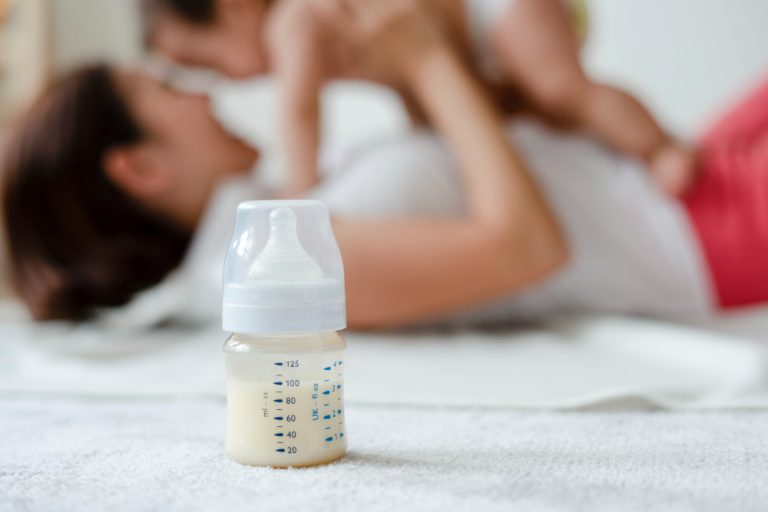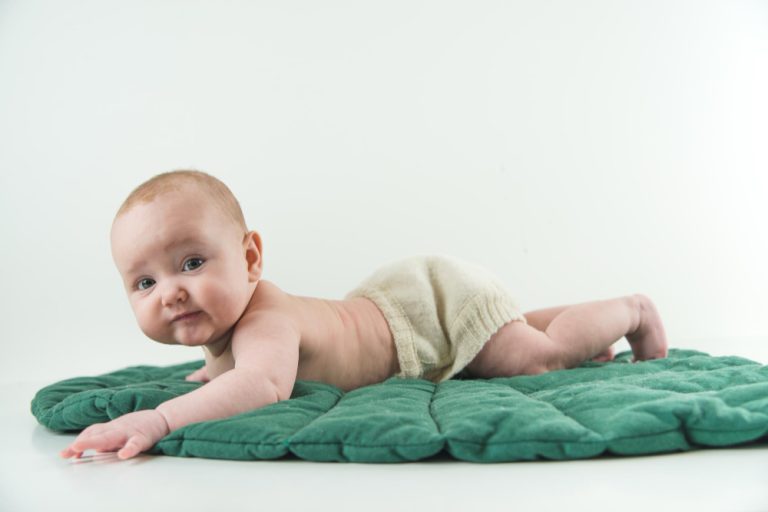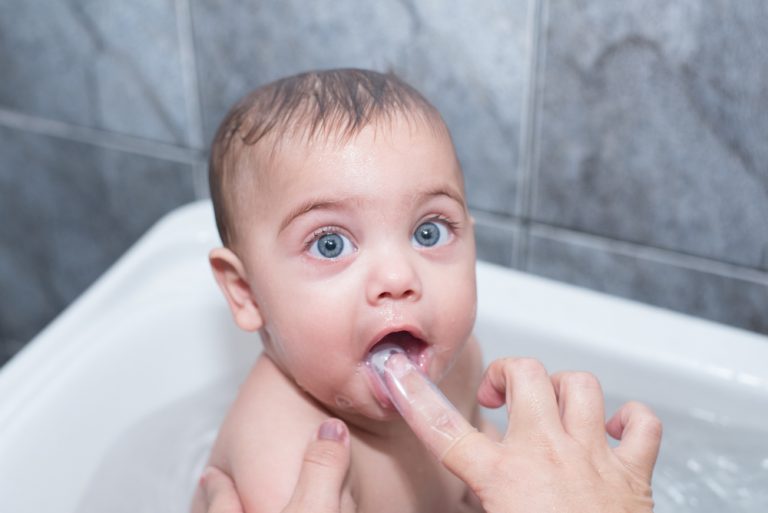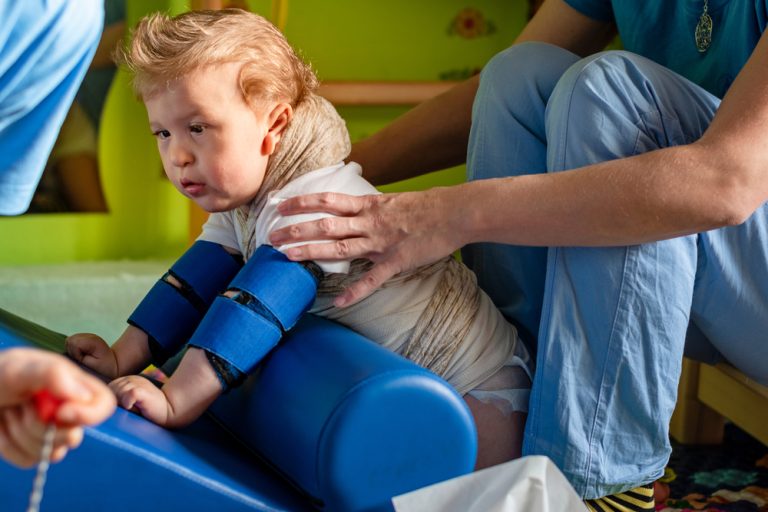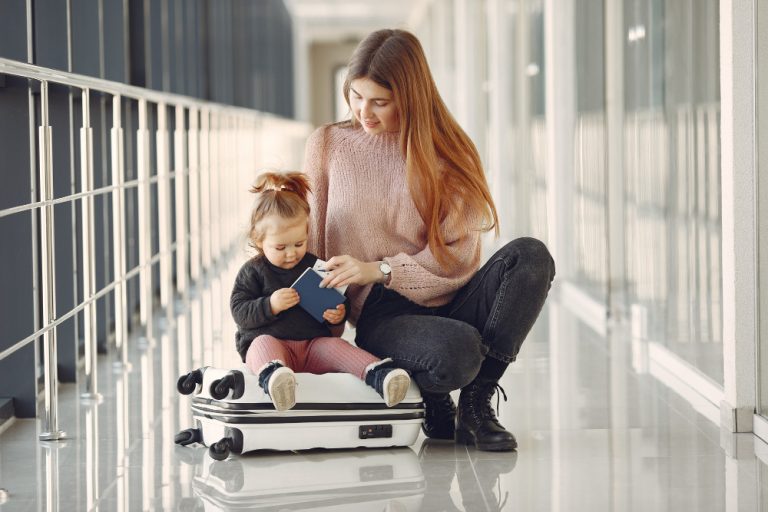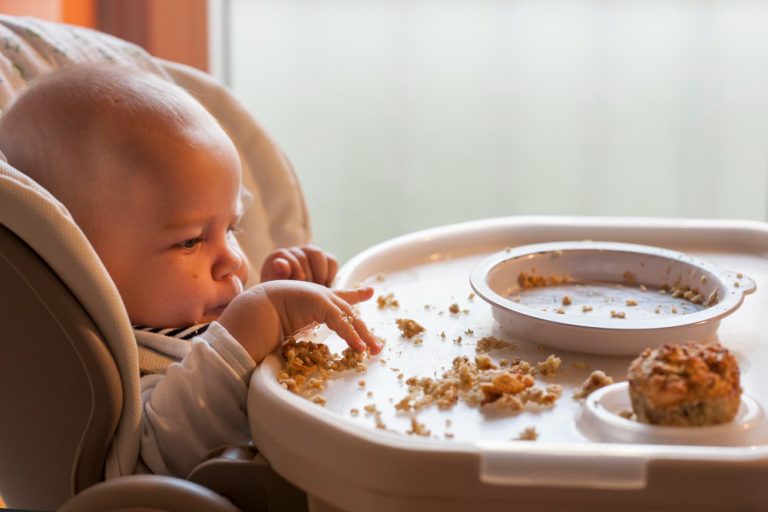When Do Babies Start To Feed Themselves With A Spoon?
Are you a new parent eagerly waiting to witness your little one’s first spoon-feeding milestone? Or perhaps you’re a seasoned parent who’s been through it all before, but still wondering, “when do babies start to feed themselves with a spoon?”
Either way, you’ve come to the right place. Teaching babies how to feed themselves is an exciting and essential milestone in their development.
In this article, “When Do Babies Start To Feed Themselves With A Spoon?”, we’ll explore the typical timeline for when babies begin to self-feed with a spoon, along with signs to watch for and tips to encourage this developmental step. So, let’s dive in!
Understanding Developmental Stages
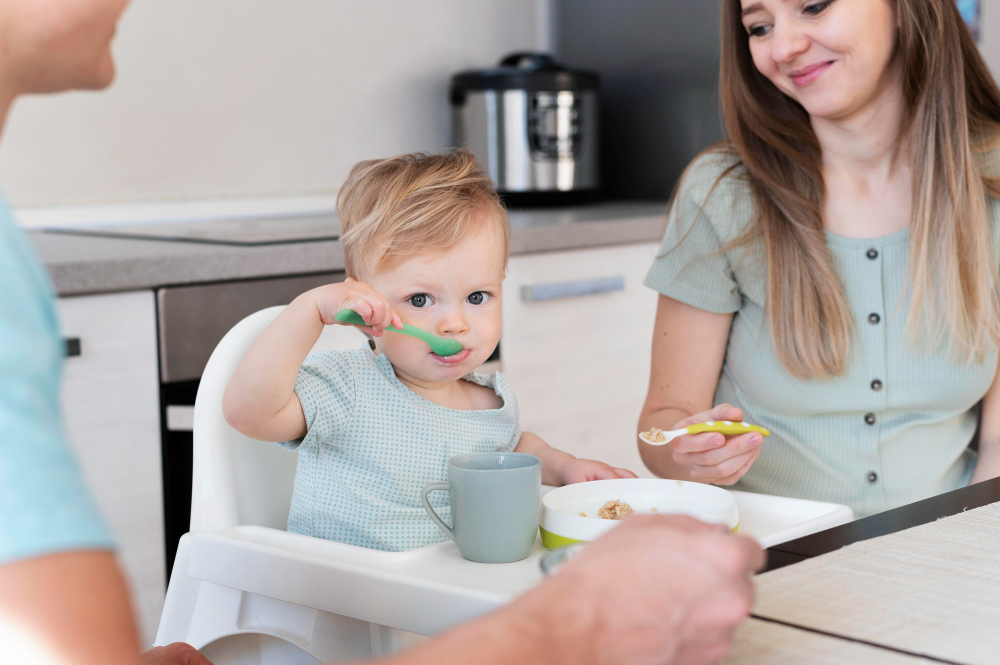
Every baby develops at their own pace. However, there’s a general window within which most babies show interest and capability in self-feeding with a spoon.
Here’s a breakdown of key developmental stages:
- Around 4-6 Months
This is when babies begin mastering the grasp reflex, allowing them to hold objects with a palmar grasp (entire hand wrapped around the object). While not quite using a spoon for self-feeding yet, this grasping development is a foundational skill.
- Around 6 Months
Most babies around this age can swallow safely from a spoon, transitioning from purees exclusively consumed from bottles or nipples. This is a crucial step before progressing to self-feeding.
- Around 8-10 Months
This period marks the beginning of babies’ development of a pincer grasp (using thumb and index finger to pick up small objects). This newfound coordination allows them to explore holding and manipulating a spoon.
- Around 10-12 Months
This is the typical timeframe when most babies start showing interest in self-feeding with a spoon. They may attempt to scoop food with the spoon and bring it to their mouth, though success might be limited initially.
- Around 18-24 Months
By this stage, most toddlers have significantly improved hand-eye coordination and fine motor skills. They can now maneuver the spoon more effectively, getting food onto it and bringing it to their mouth with greater control. However, spills and messes are still to be expected during this learning process.
Signs Your Baby is Ready to Self-Feed
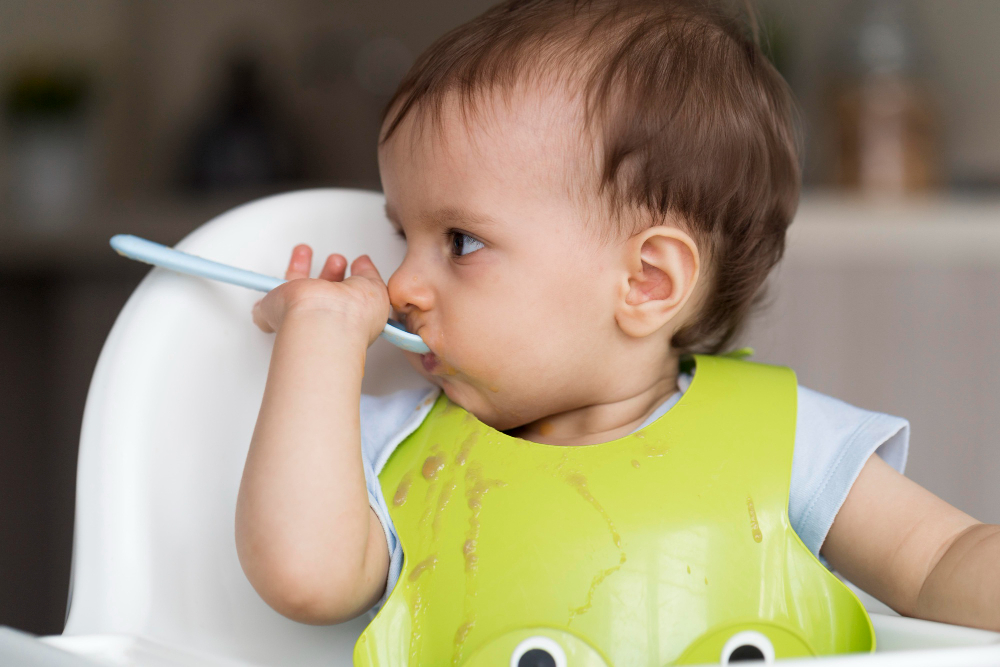
While developmental milestones provide a general timeframe, here are some specific signs indicating your baby might be ready to explore self-feeding with a spoon:
- Reaching for the Spoon
They show interest in the spoon during mealtimes, reaching for it or trying to grab it from you.
- Playing with Utensils
They pick up and explore other utensils like forks or spatulas during playtime, demonstrating their curiosity about manipulating objects.
- Mimicking You
They try to copy your actions during mealtimes, such as bringing their hand to their mouth as if holding a spoon.
- Frustration with Dependence
They might show signs of frustration when solely relying on you for feeding, wanting more control over the process.
Tips to Encourage Self-Feeding with a Spoon

- Start Early and Be Patient
Around 6-8 months, you can introduce a spoon during mealtimes, letting your baby explore holding it and getting familiar with the utensil. Remember, this is a learning process, so be patient and offer plenty of encouragement.
- Choose the Right Spoon
Select a soft, infant-sized spoon with a shallow bowl that’s easy for your baby to grasp. Opt for brightly colored spoons to attract their attention.
- Focus on Thickened Foods
Start with thicker purees or mashed foods that cling to the spoon, making it easier for your baby to scoop and transfer to their mouth.
- Lead by Example
Demonstrate how you use the spoon, narrating your actions to help them understand the process.
- Make Mealtime Fun and Messy
Mealtimes shouldn’t be stressful. Adopt the mess that comes with self-feeding. Let your baby explore and have fun while learning this new skill.
- Offer Plenty of Practice
Provide opportunities for your baby to practice self-feeding during mealtimes. You can still assist them initially but gradually allow them to take more control as their skills develop.
- Focus on the Journey, Not the Destination
The primary goal during this stage is for your baby to develop the necessary skills and gain confidence. Don’t get discouraged by spills or missed bites. Celebrate their efforts and focus on the progress they make.
Safety Considerations: When Do Babies Start To Feed Themselves With A Spoon
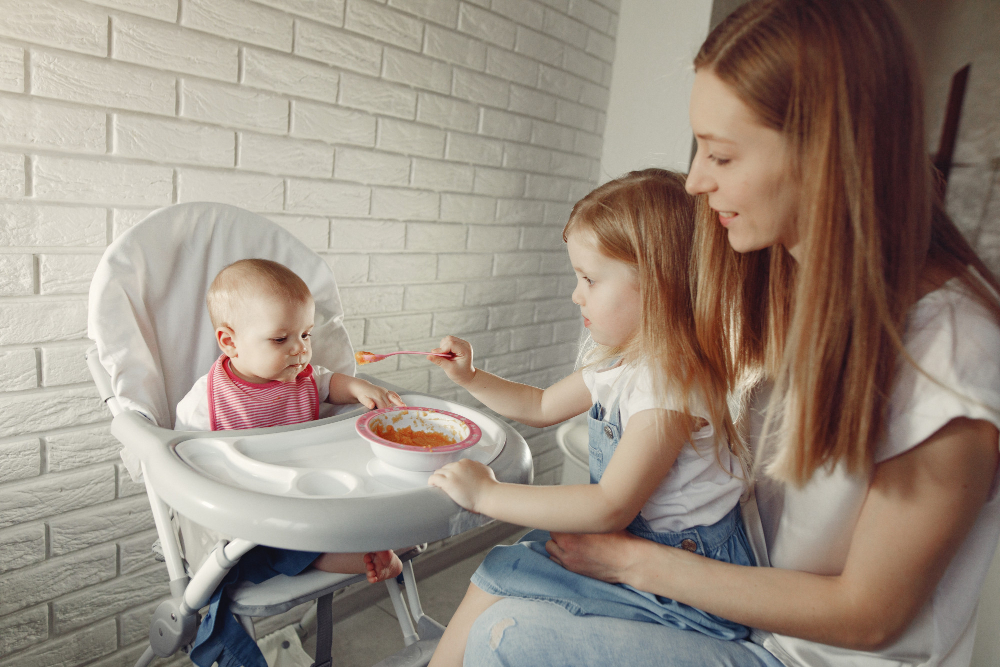
- Never leave your baby unattended while eating.
- Choose age-appropriate utensils. Avoid sharp-edged spoons or metal utensils that could cause injury.
- Start with thick consistencies. This minimizes choking hazards associated with runny or liquid foods.
While there’s a general timeframe for when babies start feeding themselves with a spoon, remember that every child develops at their own pace.
By observing your baby’s cues, providing opportunities for exploration, and offering gentle encouragement, you can support their journey toward independence at mealtimes.
Factors that can Influence the Pace of Development
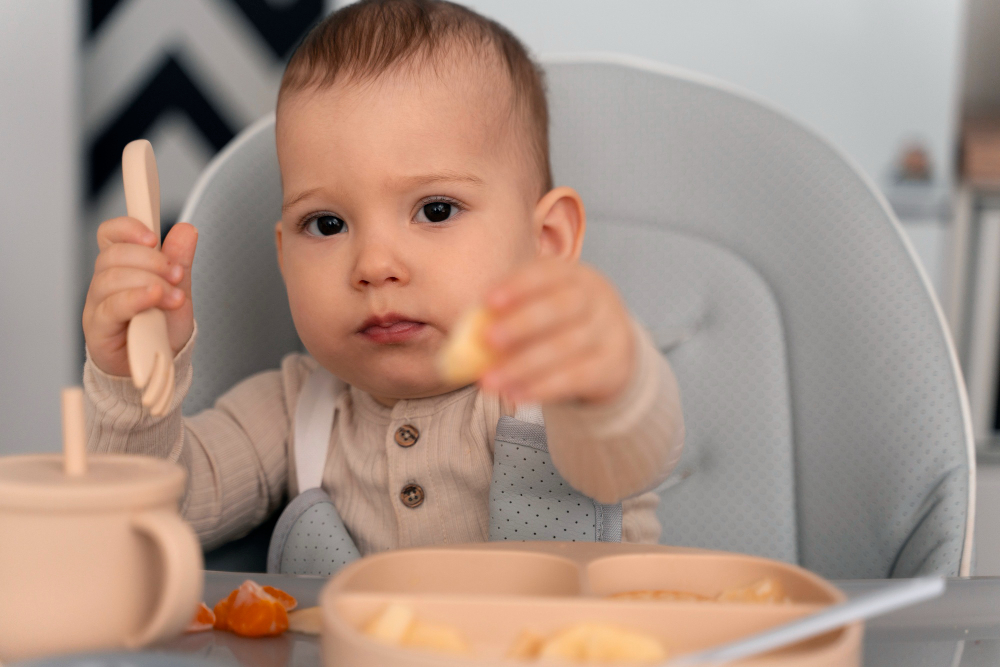
- Temperament
Some babies are naturally more eager to explore and experiment with self-feeding, while others may be more cautious and prefer to observe before taking charge.
- Feeding Experiences
Babies who have been exposed to a variety of textures and feeding methods (such as finger foods alongside spoon-feeding) from a young age might demonstrate an earlier interest in self-feeding.
- Motor Skills Development
Overall fine motor skills and hand-eye coordination play a significant role in mastering utensil use. Babies who crawl or reach for objects earlier might also grasp the concept of self-feeding with a spoon sooner.
Addressing Challenges and Setting Realistic Expectations

The journey towards self-feeding is rarely mess-free. Our initial concern was, “When do babies start to feed themselves with a spoon?” While every child is different, most babies develop the fine motor skills necessary for self-feeding with a spoon between 7 and 11 months.
However, it’s important to remember that every child is unique and may reach this milestone at their own pace. Here are some common challenges and tips for navigating them when introducing your baby to self-feeding.
- Messy Mealtimes
Be prepared for dropped food, splatters, and food ending up everywhere except your baby’s mouth. Invest in a washable bib and a splat mat to make cleanup easier. Remember, this mess signifies their exploration and learning process.
- Frustration and Tantrums
Self-feeding can be frustrating for babies, especially during the initial stages. Be patient, offer support and encouragement, and take breaks when needed.
- Uneven Progress
Don’t be discouraged if your baby seems to regress at times. Development is rarely linear, and they might have days where they seem more interested in self-feeding than others.
- Focus on Enjoyment
Mealtimes should be a positive experience. Keep the atmosphere relaxed and playful. The goal is for your baby to develop a healthy relationship with food, not to become a master utensil user overnight.
Beyond the Spoon: Encouraging Self-Feeding with Other Utensils
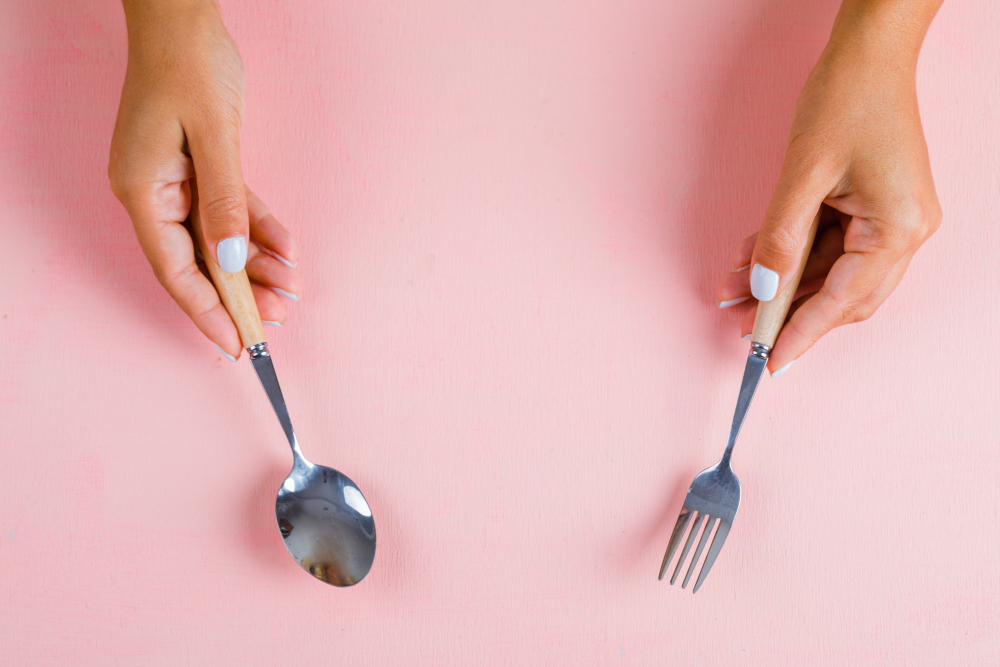
As your baby progresses with the spoon, you can gradually introduce them to other utensils like forks. Here’s a general timeline:
- Around 12-18 Months
You can introduce a child-safe fork with blunt tines. Initially, they might use it to push food around the plate, but gradually, they’ll develop the pincer grasp to pick up food.
- Around 18-24 Months
Expect continued improvement in using both the spoon and fork. They might start mastering the scooping motion with the spoon and begin to understand the stabbing function of the fork.
Remember, patience and positive reinforcement are key throughout this process.
Witnessing your baby’s journey towards self-feeding is a rewarding experience. By understanding developmental milestones such as when do babies start to feed themselves with a spoon, observing their cues, and providing a supportive environment, you can empower them to gain confidence and independence at mealtimes. Adopt the mess, celebrate their progress, and enjoy this exciting developmental stage!
Share your experiences with your baby’s self-feeding journey in the comments below! What tips and tricks have worked for you? Did your baby take to self-feeding quickly, or did it take some time and patience?


